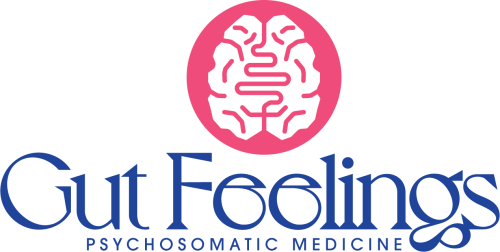Major Depressive Disorder (MDD) is a complex mental health condition that goes beyond temporary sadness or mood swings. It affects millions of people worldwide, impairing their ability to function in daily life. Understanding what causes MDD is essential for identifying risks, promoting early intervention, and tailoring effective treatments. While no single factor causes MDD, a combination of biological, psychological, and environmental influences contributes to its development.
Biological Factors
Genetic Predisposition
Family history plays a significant role in the likelihood of developing MDD. Research indicates that individuals with close relatives who have depression are two to three times more likely to experience it themselves. Genetic variations can influence brain function, making some individuals more vulnerable to depressive episodes.
Brain Chemistry Imbalances
Neurotransmitters like serotonin, dopamine, and norepinephrine regulate mood and emotions. Imbalances in these chemicals can disrupt communication between neurons, contributing to the symptoms of MDD. Advanced imaging studies also reveal altered activity in specific brain regions, such as the prefrontal cortex and amygdala, in people with depression.
Hormonal Changes
Shifts in hormone levels, such as during pregnancy, postpartum, or menopause, can increase the risk of MDD. Additionally, conditions affecting the thyroid or adrenal glands may exacerbate depressive symptoms.
Psychological Factors
Negative Thought Patterns
People who consistently experience low self-esteem or hold pessimistic beliefs about themselves and the world are more prone to developing MDD. Cognitive distortions, such as catastrophizing or overgeneralizing failures, can fuel depressive thoughts.
Past Trauma
Childhood abuse, neglect, or other traumatic experiences can leave lasting psychological scars, increasing susceptibility to MDD in adulthood. Trauma alters stress response systems, making it harder for individuals to regulate their emotions and cope with challenges.
Environmental and Social Risk Factors
Chronic Stress
Long-term exposure to stressors, such as financial problems, work pressure, or caregiving responsibilities, can overwhelm the body’s ability to cope. Chronic stress disrupts the hypothalamic-pituitary-adrenal (HPA) axis, leading to a heightened risk of depression.
Loss and Grief
The death of a loved one, divorce, or major life changes can trigger depressive episodes. While sadness is a natural response to loss, prolonged and overwhelming grief may evolve into MDD.
Social Isolation
Loneliness and lack of a supportive social network are significant risk factors for MDD. Humans thrive on connection, and prolonged isolation can intensify feelings of worthlessness and despair.
Medical Conditions and Substance Abuse
- Chronic Illnesses: Diseases like diabetes, heart conditions, and cancer are closely linked with higher rates of depression. Chronic pain and physical limitations can also contribute to feelings of hopelessness.
- Medications: Certain medications, such as steroids, beta-blockers, or anticonvulsants, may have side effects that induce depressive symptoms in susceptible individuals.
- Substance Abuse: Alcohol and drug misuse can disrupt brain function and lead to dependency, which exacerbates depression. Substance abuse often creates a vicious cycle, where individuals use substances to escape depression but worsen their condition over time.
The Interplay of Risk Factors
MDD often arises from an interplay of these risk factors rather than a single cause. For example, someone with a genetic predisposition may only develop MDD after experiencing significant life stress or trauma. Understanding this interplay underscores the importance of a holistic approach to prevention and treatment.
Takeaways
Major Depressive Disorder is a multifaceted condition with roots in biological, psychological, and environmental factors. By recognizing the diverse causes and risk factors, individuals and healthcare providers can better identify vulnerabilities and intervene early. If you or someone you know is struggling with depression, seeking professional help can make a life-changing difference. Treatments like therapy, medication, and lifestyle modifications offer hope for managing MDD and reclaiming well-being.


